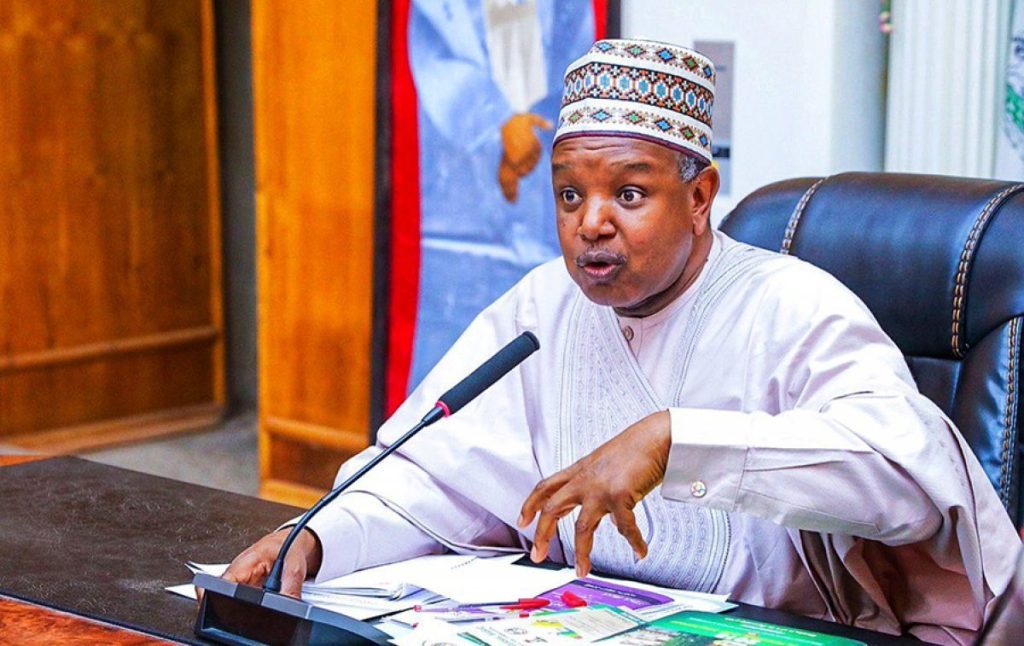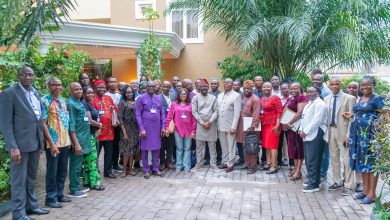Tinubu’s Reforms Are Paying Off Despite Hardship, Says Budget Minister Atiku Bagudu
As Nigeria marks two years under President Tinubu’s leadership, Budget Minister Atiku Bagudu says bold reforms are already driving investor interest and rebuilding economic foundations.
He praised Tinubu’s tough choices on subsidy cuts and forex reforms, urging citizens to stay hopeful as the government steers toward long-term national prosperity.
As Nigeria marks the second anniversary of President Bola Ahmed Tinubu’s administration, the Minister of Budget and Economic Planning, Senator Atiku Bagudu, has expressed optimism about the country’s economic trajectory, noting that the bold reforms introduced by the current government are gradually beginning to yield positive outcomes.
Speaking to journalists shortly after paying a courtesy visit to President Tinubu at his Lagos residence, Bagudu highlighted the administration’s commitment to long-term national prosperity, even amid short-term difficulties being experienced by citizens. According to him, the government’s economic restructuring efforts are already laying the groundwork for sustainable recovery and growth.

Bagudu praised Tinubu’s decisive leadership, particularly on critical policy matters that previous administrations were reluctant to tackle. He specifically referenced the removal of costly fuel subsidies, the unification of the foreign exchange rate, and the gradual reduction of electricity subsidies as significant, albeit painful, steps toward stabilizing the Nigerian economy.
“These were not easy decisions,” Bagudu said, “but they were necessary. For years, Nigeria operated under an unsustainable economic structure. Subsidies were draining public resources while doing little to improve the lives of ordinary citizens. President Tinubu chose to confront these problems head-on rather than kick the can down the road.”
According to the minister, funds previously allocated to subsidies are now being redirected to more impactful and growth-oriented sectors such as infrastructure development, agriculture, digital innovation, consumer credit systems, and human capital development. This shift, he explained, is beginning to stimulate broader economic activity and attract renewed investor interest in Nigeria.
He emphasized the importance of investment both public and private as a key driver of economic development. “The difference between developed and developing nations is investment,” Bagudu noted. “By removing structural bottlenecks, we are making Nigeria a more attractive destination for both local and international investors.”
The minister acknowledged that the road to reform has not been easy. Years of mismanagement, policy inconsistency, and underinvestment had taken a toll on key sectors of the economy. However, he assured Nigerians that the administration is committed to correcting these historic imbalances through well-targeted policies and accountability-driven governance.
Bagudu also pointed to the growing number of opposition figures and state leaders who have recently joined the ruling All Progressives Congress (APC), including governors from Delta and Akwa Ibom states, as a sign of increasing faith in Tinubu’s leadership. He argued that this political alignment underscores a broader recognition of the government’s genuine effort to reposition the country.
“As Nigerians celebrate Eid and reflect on the past two years of this administration, they can be assured that the seeds of reform are taking root,” Bagudu said. “Yes, we are experiencing challenges, but we are also seeing rising investment, improving policy credibility, and renewed global engagement.”
The minister concluded by reaffirming the administration’s commitment to inclusive growth and national development, urging citizens to continue supporting the government as it works to deliver on its promises.



